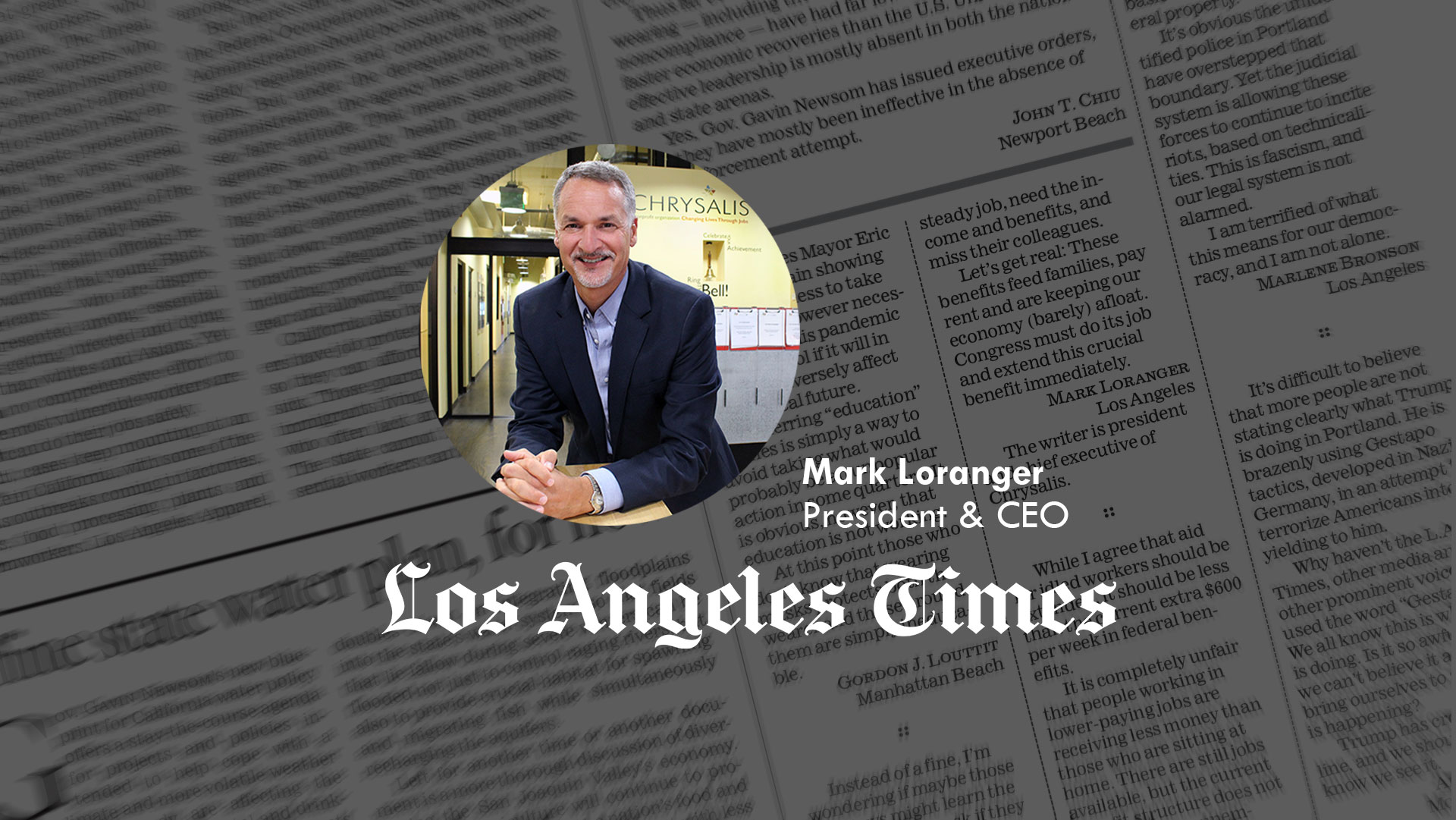Chrysalis President & CEO Mark Loranger submitted a letter to the editor upon reading a recent Los Angeles Times article by reporter Jennifer Haberkorn about policymakers and their proposals for unemployment benefits.
In an effort to examine assumptions that extending a $600 federal unemployment benefit would decrease an individual’s interest in seeking employment, Mark surveyed Chrysalis’ case managers. He found that of the Chrysalis clients who are receiving unemployment, the vast majority would rather return to work. Citing studies by Yale University and the Federal Reserve Bank of Chicago, the letter referred to data that also showed that there is no correlation between the enhanced unemployment benefits and interest in looking for work. In fact, the opposite is true.
Chrysalis encourages the federal government to act sensibly and quickly. The Times reported that in response to one current proposal, the National Association of State Workforce Agencies, “…which represents governments administering unemployment insurance in all 50 states, said that for most states it would take eight to 20 weeks to program and implement a system in which agencies paid a certain percentage of replacement wages for each individual worker.” The minimum timeframe in this example represents two months of missing rent, difficulty paying bills, and puts individuals and families at-risk for losing any grip they have been able to maintain.
Read Mark’s full letter to the editor below or on the Los Angeles Times website:
“It is disheartening that policymakers are suggesting the $600 supplemental unemployment benefit should be drastically cut because it supposedly provides a disincentive to work. The facts simply do not support this, as shown in recent studies from Yale University and the Federal Reserve Bank of Chicago.
Our experience at Chrysalis, a nonprofit that helps people experiencing homelessness and economic barriers find jobs, supports the view that people want to get back to work, regardless of the availability of these benefits. We surveyed our case managers this week to ask them what they are hearing from the 3,700 clients they have spoken to since the pandemic began.
Of those clients who are receiving unemployment, only a handful say they would prefer to stay on unemployment rather than returning to work — and those clients are either in a high-risk category and afraid for their health, or have other challenging family situations that would make it difficult to return to work.
The vast majority say they want to work. They enjoy the security and dignity that come with a steady job, need the income and benefits, and miss their colleagues.
Let’s get real: These benefits feed families, pay rent and are keeping our economy (barely) afloat. Congress must do its job and extend this crucial benefit immediately.”
Mark Loranger, Los Angeles
